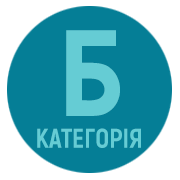PSYCHOLOGICAL FEATURES OF MALADJUSTMENT OF SERVICEMEN – PARTICIPANTS IN HOSTILITIES
DOI:
https://doi.org/10.32782/psyspu/2024.1.32Keywords:
maladjustment, readaptation, combat stress, acute stress disorder, post-traumatic stress disorderAbstract
Maladjustment in the behavior of servicemen can be manifested both after exposure to extreme conditions and after demobilization. Maladjustment manifestations of servicemen on the battlefield can be manifested at different levels, including vegetative, affective, and asthenic. Factors affecting the quality of formation of adaptation of a serviceman on the battlefield are: immediate threat to life and health, contact with death, contemplation of it and the suffering of others, physical and psychological conditions of service, awareness of the situation, experience of being in similar extreme weather conditions and natural circumstances, the attitude of the serviceman himself to the service, the importance of the performed tasks for the individual and society, the attitude of the family to the person’s stay in the combat zone, religious beliefs, individual sensitivity and evaluation of the acquired experience. The study of manifestations of maladjustment of servicemen is an important stage in the development of a methodological apparatus aimed at improving the standard of living of Ukrainian soldiers and helping them return to life, taking into account the new acquired experience. Theoretical reasoning and empirical research allowed us to draw the following conclusions. Among the interviewed servicemen are people with different levels of intensity of combat experience. Some of the respondents were involved in long and difficult hostilities, witnessed direct violence, human suffering, provided aid to the wounded, or actually suffered injuries. This experience has a strong negative impact on the soldier’s psyche, leads to the development of adaptation disorders and post-traumatic reactions. Half of the surveyed servicemen have pronounced violations of normal adaptation to the conditions of the civilian environment. This is mostly manifested in a decrease in the general psycho-emotional background, irritability, invasion of the consciousness of the elements of the event that was traumatic, difficulty falling asleep, nightmares, change of interests and preferences, transformation of the circle of communication and change of its vector. There is a direct correlation between the intensity of the combat experience experienced by a serviceman and his post-traumatic reactions and manifestations of readaptation disorders. However, this ratio is also influenced by the personal characteristics of the warrior, such as character traits, the presence of similar experiences, sensitivity to their experiences, the strength of the nervous system, and the peculiarities of physiology.
References
Miller G.F. Mate choice: From sexual cues to cognitive adaptations. Ciba Foundation Symposium. 1997. № 208. Р. 74–87.
Buss D.M. The great struggles of life: Darwin and the emergence of evolutionary psychology. American Psychologist. 2009. № 64 (2). Р. 140–148.
Друзь О.В. Психодіагностика посттравматичного стресового розладу у учасників локальних бойових дій. Український вісник психоневрології. 2018. Т. 26. Вип. 2. С. 37–43.
Корольчук М.С., Крайнюк В.М. Соціально-психологічне забезпечення діяльності в звичайних та екстремальних умовах: навчальний посібник для ВНЗ. Київ: Ника-центр, 2006. 580 с.
Корольчук М.С. Психофізіологія діяльності: підручник для студентів вищих навчальних закладів. Київ: Ніка-Центр, 2003. 395 с.
Чубенко І.М. Формування психологічної готовності військовослужбовців до виконання завдань антитерористичної операції: порадник для офіцерів та сержантів. Штаб АТО: Адміністр. Упр. ГШ ЗСУ, 2014. 22 с.
Царенко Л.Г., Бойко С.Т. Трансформація традиційних уявлень про здоров’я і благополуччя в умовах збройного конфлікту в Україні. Personality, family and society: issue of pedagogy, psychology, politology and sociology: International scientific-practical conference (June 16–17, 2017, Shumen, Bulgaria). Shumen: Konstantin Preslavsky University of Shumen; Faculty of Education, 2017. С. 164–167.







